

Tao Te Ching

Aphorists / Compilers Lineage
Stories about the Buddha describe how after his enlightenment he struggled for weeks wondering how he could communicate the wisdom he discovered to others. Words and phrases have the potential of sparking realization but also the danger of devolving into “golden chains,” cliché, dogma, and rigid sectarianism. Words are like diving boards. The harder we jump on them, the further they can take us. Or—as described in the Buddhist tradition—like gold buried in raw rock and needing to be pounded, burned, and tested to find the true but hidden essence. Our lineage of aphorists describe some of the people and books who have done this by condensing and translating experiential wisdom and insight into contemporary words and phrases capable of sparking new realization and inspiration for common people.
People (20)
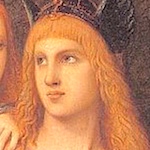
Hesiod
846 – 777 BCE
“History’s first economist”
Called “history’s first economist,” farm hand, singer, epic poet of the people; Hesiod used his poetry to paint and establish religious customs, Greek mythology, good farming practices, and a foundation for the poor to overturn the injustices and inequality of the kings and aristocracy. He protested against injustice, furthered the understanding of astronomy and time keeping, the economics of sea trade, and gave meaningfulness to creativity and hard work. While Homer extolled the hero, the rich and powerful; Hesiod championed the working classes and the common person (though not women).
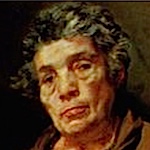
Aesop
620 – 546 BCE
Hero of the oppressed and downtrodden
Known as a strikingly ugly slave who by his cleverness became free and an adviser to kings and city-states, some historians believe Aesop was a black from Ethiopia and became Uncle Remus in the Cherokee, Algonquin and American slave tradition of Br'er Rabbit. In many cultures he symbolizes a hero of the oppressed, disadvantaged and downtrodden who with wisdom and understanding outsmarts and wins over the rich and powerful. Famous throughout the world - from China to Africa, from Europe to Japan, from ancient times until today; Aesop’s fables and sayings remain a profound influence of goodness and insight.

Buddha गौतम बुद्ध (Siddhartha Shakyamuni Gautama)
563 – 483 BCE
Awakened Truth
While living at about the same time as Lao Tzu, the Buddha was more of a traditional teacher. His teachings, often called Buddha Dharma (“Awakened Truth”) extend and adapt to people in all walks of life: monks, householders, wandering yogis, kings and secular leaders of all kinds. Born into luxury and privilege, Siddhartha realized the meaninglessness of pleasure-seeking, fame, fortune, power and set off on a spiritual quest leading him to the deepest realization and insight. He cautioned against belief systems, herd instinct, and uncritically following leaders, philosophies, and religions.
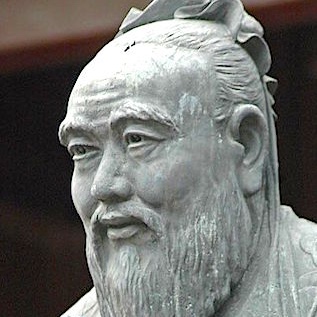
Confucius 孔丘 (Kongzi, Kǒng Zǐ)
551 – 479 BCE
History's most influential "failure"
Probably the most influential failure in history, Confucius wanted to be a political advisor, found only one job doing that but unsuccessfully as was the rest of his life attempts at being an administrator. Early Confucian scholars were killed and their books burned. After he died though, his teaching shaped the next 2300 years of Chinese educational, governmental, and cultural practice. He was the first in recorded history to set up an educational program to train people for governmental roles. Calling himself a "transmitter who invented nothing,” his tradition did not become a religion but instead a non-theistic, humanistic understanding of secular morality that stressed having rulers appointed based on merit rather than birth, rule by personal example rather than fiat, acting out of awareness and experience rather than only following rules.
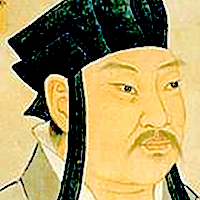
Yang Xiong 揚雄
53 BCE – 18 CE
"Confucius from the western parts,” poet, philosopher, I Ching scholar, and politician; Yang Xiong became one of the most famous people of the entire Han dynasty. His most well-known and influential book was Exemplary Sayings (法言) which includes him in our lineage of aphorists. He took a middle-ground approach between Xunzi and Mencius describing basic human nature as neither basic goodness or basic badness characterizing it as a complex combination.

Epictetus Ἐπίκτητος
55 – 135 CE
Born a slave, Epictetus found freedom and—until he was banished in 93 CE—taught philosophy in Rome as a way of life. He taught that the foundation of all philosophy is self-knowledge, that we all have basic goodness, and that we are not separate but interconnected and one with each other and all of the world. His influence extends from Marcus Aurelius to medal-of-honor winning US vice-presidential candidate James Stockdale and includes artists like James Joyce, Tom Wolfe, David Mamet and J.D. Salinger.

Atisha ཨ་ཏི་ཤ་མར་མེ་མཛད་དཔལ་ཡེ་ཤེས་ (Atiśa Dīpaṃkara Śrījñāna)
980 – 1054 CE
One of the major figures in classical Buddhism, Atiśa inspired students and teachers from Tibet to Sumatra. Born into royalty in the capital of the Pala Empire, Atiśa became a monk and scholar said to have studied with more than 150 different teachers. Founder of the Kadam School, he traveled and taught widely. In The Seven Points of Mind Training he condensed Buddhist teachings into easy-to-remember slogans. The lineage of people using this technique includes Aesop, Balthasar Gracian, Ben Franklin, Erasmus, Yang Xiung as well as The Dhammapada.
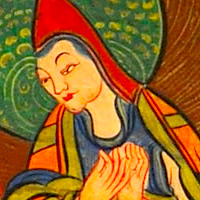
Sakya Pandita ས་སྐྱ་པཎྜ་ཏ་ཀུན་དགའ་རྒྱལ་མཚན། (Kunga Gyeltsen)
1182 – 1251 CE
Tibetan spiritual leader, scholar, doctor, scientist, poet, and politician; Sakya Pandita spent his early life as a monastic scholar and his late life applying his experience and understanding to the secular world as an advisor to the Mongol court. Born into a noble family; he began his religious studies at only 5 years old, became a monk at a very early age, and studied in Kashmir, India, and Nepal bringing an international view to his teachings. After Genghis Khan conquered Tibet in 1206, his descendants – drawn by the shamanistic similarities between the Sakya and Mongol traditions – brought Sakya Pandita into the government in an attempt to legitimize Mongol rule. At court he cured the Prince of a serious illness, was given authority over much of Tibet, and became the main agent of the Mongols in Tibetan affairs. He prevented more devastating invasions of Tibet, established an almost 100-year secular Sakya rule, and wrote some of the most influential Tibetan works of literature, many that are still part of the educational curricula today in Tibet, India, and Bhutan.

Erasmus (Desiderius Roterodamus)
1466 – 1536 CE
"Greatest scholar of the northern Renaissance"
"Prince of the Humanists,” famous translator, globalist and true citizen of the world; Erasmus emphasized a middle way approach between Luther and the Pope during the Reformation angering both sides. Not many know much about about him but his legacy is well known in the sayings and phrases he compiled and popularized. Some of his sayings like “The grass is always greener on the other side of the fence,” “God helps those who help themselves,” “Don’t put the cart before the horse,” “Leave no stone unturned,” “In the land of the blind the one-eyed man is king,” “No sooner said then done,” “Between a rock and a hard place,” “Call a spade a spade,” “Women – can’t live with them or without them,” “Like father like son,” “To look a gift horse in the mouth,” “To break the ice,” “To cut to the quick,” “One step at a time,” “A necessary evil,” “What’s done cannot be undone,” “Up to his eyeballs,” “To sleep on it,” have not only entered into common conversation; but also, become a powerful influence on Western culture.

Balthasar Gracian
1601 – 1658 CE
Spanish Jesuit, philosopher and prolific writer, Gracian amplified the slogan/quote tradition of Aesop, Yang Xiung, the Dhammapada, Atisa and continued by Erasmus and Ben Franklin. At times highly respected, he was also exiled by outraged superiors for his provocative philosophy and lost his teaching tenure. An important influence on Nietzsche, Voltaire, Schopenhauer and Winston Churchill; his book Art of Worldly Wisdom - translated into many languages – continues today as a best seller and exceptionally valuable resource of helpful advice.

Benjamin Franklin
1706 – 1790 CE
Beginning his adult life as a penniless runaway, Franklin became one of the world’s most admired people. He was a founding father, diplomat, scientist, philosopher, businessman, inventor, and the politician most responsible for winning the Revolutionary War. His inventions included the lightning rod, bifocals, the Franklin stove, and he helped start many new civic organizations including voluntary fire departments and paid police forces. He recreated the slogan/quote tradition of Aesop and Atisa that we continue in our “Comments” link.
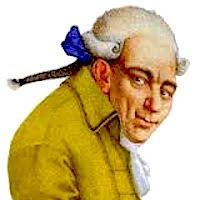
Georg Christoph Lichtenberg
1742 – 1799 CE
One of history’s best aphorists
Youngest of 17 children, scientist, professor of physics, satirist, and hunchback; Lichtenberg had a major influence on the culture of his times that extends into the modern world. He discovered tree-like electrical patterns now called Lichtenberg figures or fractals, the basic principles used now for copy machine technology, a “Compass of Motives” praised by Freud and also standardized the paper sizes now used in most of the world. Considered one of history’s best aphorists, he was read and admired by wisdom lineage holders like Arthur Schopenhauer, Friedrich Nietzsche, Sigmund Freud, Leo Tolstoy, and even Chinese scholars like Qian Zhongshu.
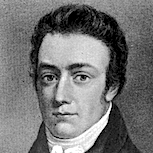
Samuel Taylor Coleridge
1772 – 1834 CE
One of the most influential English poets, co-founder of the Romantic Movement, prominent philosopher, gothic pioneer and leviathan impact on Mary Shelley, William Wordsworth, Thomas Carlyle, Emerson and American transcendentalism; Coleridge paid for his renown with poor health, depression, bipolar disorder, and a lifetime of opium addiction. Rescuing Shakespeare’s play Hamlet from denigration by critics, he established his reputation as aliterary critic. The instigator of "Conversational Poetry,” using common, everyday language to convey deep images and wisdom, he coined many still-used words like soulmate, selfless, pessimism, relativity, narcissism, actualize, and intensify

Arthur Schopenhauer
1788 – 1860 CE
Though mainly unnoticed during his life, after he died Schopenhauer’s work had a huge impact on psychology, literature, art, philosophy, music and science. He was one of the first Western thinkers to affirm major aspects of Eastern philosophy. He called himself a Buddhist and compared his philosophy to basic Buddhist teachings. Einstein extolled Schopenhauer’s life-long influence and he was also respected and emulated by people like Nietzsche, Tolstoy, Freud, Jung, Joseph Campbell and Thomas Mann. His influence continues today into fields like modern evolutionary psychology.

Mark Twain (Samuel Langhorne Clemens)
1835 – 1910 CE
America’s most famous author
Riverboat captain, adventurer, bankrupted businessman, inventor, and America’s most famous author; Mark Twain, with his wit, wisdom, insight, and humor influenced and continues to positively influence the world. A strong supporter of women's, religious, racial, and labor rights; he wrote scathing indictments on war, patriotic, and religious bigotry and published new work in 3 different centuries. Though disliked by his wife Livy, his book The Adventures of Huckleberry Finn ranks among history’s all time best. Ernest Hemingway said, ”All modern American literature comes from one book by Mark Twain called Huckleberry Finn.”
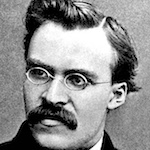
Friedrich Nietzsche
1844 – 1900 CE
Philosopher, scholar, poet, unifier of opposites and courageous critic of Western Civilization, Nietzsche proclaimed that “God is Dead,” that Christianity is “one great curse, one great intrinsic depravity,” and then started a “campaign against morality.” With a deep appreciation for Buddhism and rejecting external authorities like a “God” or a Church, he extolled the ability for people to discover their own morality grounded in reality rather than following herd-based ethics and beliefs. With a dedication to the sense over the words, people as diverse as D. H. Lawrence, Mishima, Rilke, Jack London, Hermann Hesse, Martin Heidegger, Carl Jung and many others described him as a most important influence on themselves personally as well on as society and the evolution of consciousness.
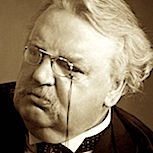
G. K. Chesterton
1874 – 1936 CE
Social critic, theologian, and philosopher turning popular proverbs inside out with deep insight and laugh-out-loud humor; Chesterton was called both the best writer and best thinker of the 20th century, “the most unjustly neglected writer of our time,” and the "prince of paradox.” One of the most prolific authors of all time, he wrote more than 100 books, hundreds of poems, plays, short stories and over 4000 newspaper articles. Over 300 pounds and 6’4,” normally wandering around lost with a cigar in his mouth, writing many of his articles in train stations after inadvertently missing his train; he criticized both capitalism and socialism predicting the modern polemic stalemate of progressives “continually making mistakes” while conservatives continue to “prevent the mistakes from being corrected." He influenced atheist C.S. Lewis’s conversion to Christianity, the movement for Irish Independence, and Gandhi’s movement to end British colonial rule. He “changed the life” of Marshall McLuhan and inspired the novels and writings of Neil Gaiman, Terry Pratchett, Ernest Hemingway, Graham Greene, Agatha Christie, Jorge Luis Borges, George Bernard Shaw, H.G. Wells, E.F. Schumacher, Bertrand Russell and many more.
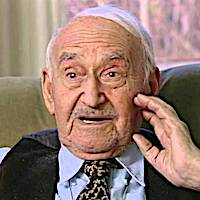
George Seldes
1890 – 1995 CE
Pioneering investigative journalist and champion of the exposé
Star investigative reporter, muckraker, contrary-minded journalist, author, philosopher, and true citizen of the world; George Seldes lived a 104-year life full of adventure in dangerous countries, political challenge on the edge, and philosophical insight threatening the status quo. There and reporting on Hitler’s Berlin, Lenin’s Moscow, Mussolini’s Rome, and Franco conquering Spain; he was often characterized as too radical. Criticized and censored by newspapers, foreign and U.S. governments; one of his censored interviews with the supreme commander of the German Army could have prevented the rise of Nazi power before World War II. Expelled from the Soviet Union after interviewing Lenin and “not showing enough respect,” and from Italy after he implicated Mussolini (who had worked for Seldes before gaining power) in the murder of an opposition leader; he wrote exposés on the Roman Catholic Church, the global arms industry, and the complicity of the press with the tobacco industry in suppressing information on the bad effects of smoking. Toward the end of his life, he spent 20 years gardening and gathering material for a book of the world’s most influential thoughts.
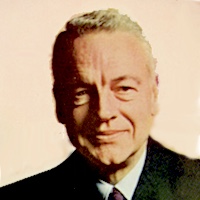
Robert Hutchins (Robert Maynard Hutchins)
1899 – 1977 CE
An educational philosopher whose time has arrived; Robert Maynard Hutchins was University of Chicago president, Yale Law School dean, Editor In Chief of the Great Books of the Western World, and a leading proponent of secular perennialism—nonspecialized and nonvocational
education based on discovering the “sense” rather than relying on just the words, on principles not just facts. Encouraging deeper understanding, prioritizing thinking for ourselves, and attacking superficial focus on entertainment and the narrow “trade school” approach to education; he eliminated varsity football at the University of Chicago and implemented novel educational programs based on the Great Books and Socratic dialogue. In later life he ran the Ford Foundation and channeled huge sums into programs for adult education, to train teachers, and to spread liberal arts. One of these became PBS.
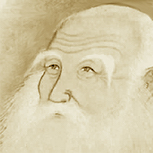
Shan Dao 山道
1933 CE –
Translator, entrepreneur, farmer, engineer, inventor, house-holder, and single father; Shan Dao grew up in a remote but culturally diverse village. Alienated from the materialism and militarism of his environment, he was drawn toward a spiritual path and at 4 years old began experiencing at first a mystical Christianity and later one more in harmony with Doestoevesky and Teilhard de Chardin. He practiced at first Rinzai and later Soto Zen, Tibetan Vajrayana Buddhism, and a Rimé Shambhala tradition which led to an immersion in the Tao Te Ching and the deep wisdom streams hidden but flowing in our many different religious cultures.
Related Sources (1 sources)
Quotes about the Aphorists / Compilers Lineage (1 quotes)
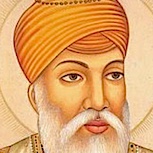
“The world has fallen in love with a dream. Only sayings of the wise will remain.”
Comments: Click to comment
Comments (1)